Write Us
We are just a call away
[ LET’S TALK AI ]
X
Discover AI-
Powered Solutions
Get ready to explore cutting-edge AI technologies that can transform your workflow!

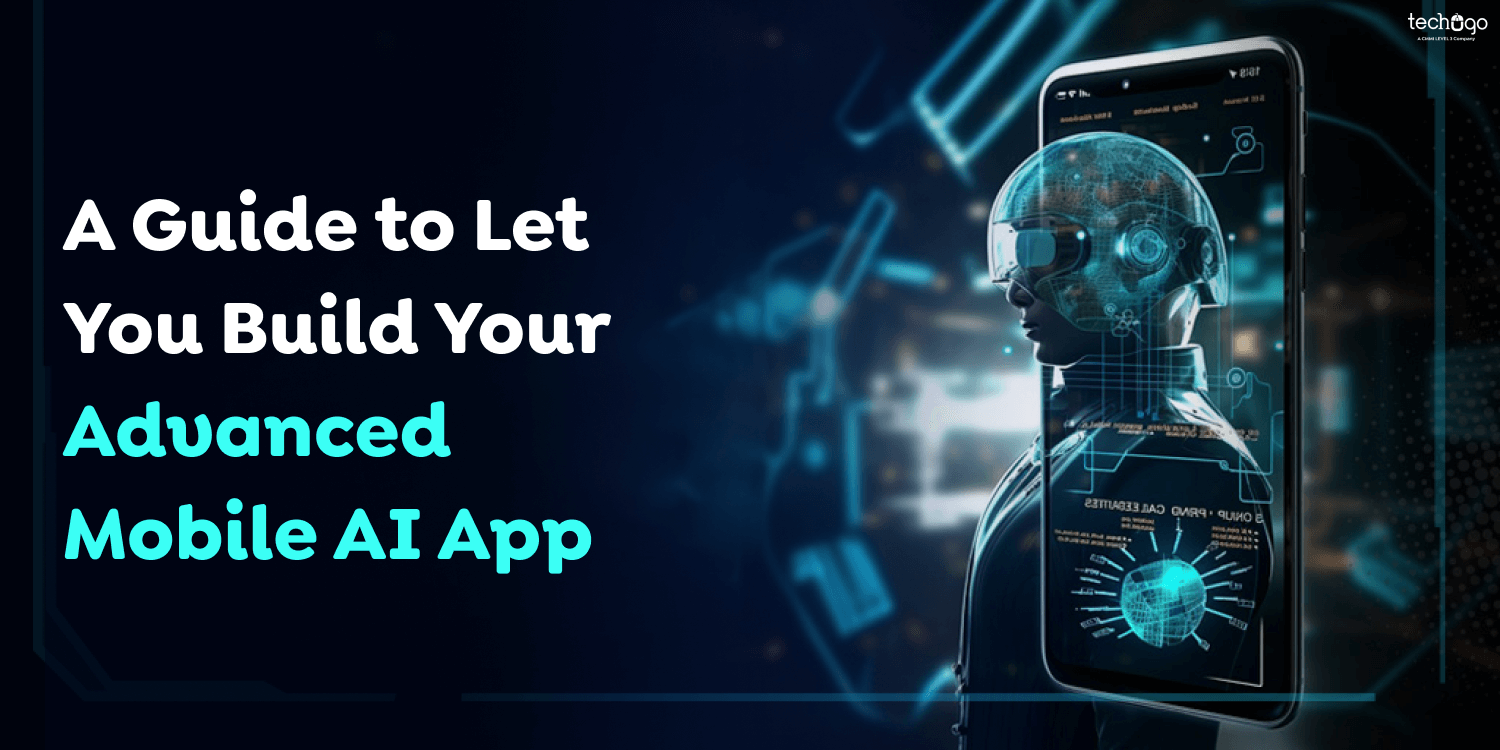
Artificial intelligence (AI) has been a trend around the globe for a while. All over the place, from entertainment, healthcare, business, education, and travel to the realm of governance. There is no field in which AI hasn’t impacted. The impression is that AI has been everywhere recently, right? It’s true that artificial intelligence is changing the face of many industries and will shape the future.
While it’s true that the AI market is currently quite saturated, it has plenty of business potential. However, it’s more than just creating cutting-edge technology. The key is to think large and focus on using artificial intelligence’s power to solve complex issues that have not been solved previously. It requires specialized industry knowledge, a thorough market analysis, and a skilled group of app developers who can bring it to fruition.
Big companies are investing hundreds of millions into AI-powered application creation projects to make this all the more fascinating. In addition to these technology conglomerates, small businesses have also been developing apps powered by AI. Yet, creating a top-performing and reliable application can be an uphill task so work with a reputable AI app development company to attain the desired outcomes.
In this blog, we’ll examine how to create an AI-powered mobile app.
So, let’s get started.
AI refers to any computer or device that mimics human intelligence, with AI apps utilizing advanced algorithms to drive functionality and enhance productivity. Their capabilities are practically limitless, making them a revolutionary technological field with wide applications.
These platforms, programs, or applications employ AI for various functions that usually need human input. Artificial Intelligence App development utilizes different AI techniques, such as natural language and machine learning processing, to analyze data, identify patterns, make predictions, and interact with humans.
AI is a tool that can automate processes and offer smart solutions to issues. One of the best aspects is that artificial intelligence applications are made to be able to learn. They utilize data and can improve by adjusting to changing conditions and discovering more effective ways to fulfill the user’s needs. The self-improvement process allows them to achieve better results and advance the technology.
Also Read : How to Hire a Full-Stack Developer in 2025: Best Platforms, Costs & Key Benefits
Artificial intelligence is built on various fundamental components. We’ll look them up a little more closely.
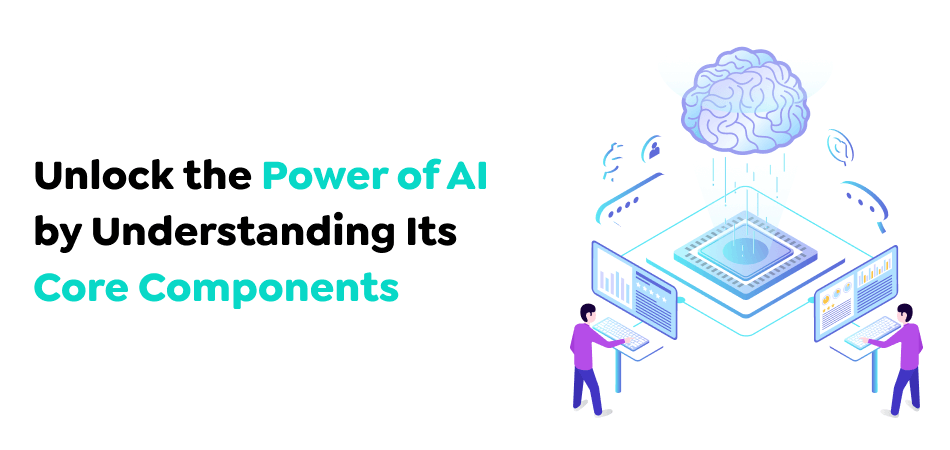
Computer programs are different from humans. Learning by computers can be separated into various forms, and the learning process to use AI is among the primary elements. It involves solving issues utilizing trial-and-error methods. It keeps track of positive actions and stores the results in its database the next time it encounters the same problem. Learning in AI involves memorizing specific items like vocabulary or solutions to issues. This is also known as rote learning. This method of learning could later be utilized using the generalization method.
Also Read : Learning Made Easy! Build Up Your Arabic Language Learning App
Until the past five decades, it was believed that reasoning was only available to humans. Being able to differentiate is a crucial element of AI. The ability to distinguish allows the system to conclude appropriate to the circumstance. The inferences are described as either inductive or deductive. The success rate is high, with deductive inferences made using computer programming. Inferential cases offer assurance that the issue can be addressed. For example, the incident can be considered an inductive event, but the cause is always due to a malfunctioning instrument. Thinking involves drawing conclusions that relate to the situation at hand.
The ‘perception’ part of artificial intelligence permits the system to look at every environment with different sensorial organs. Internal processes give the perception to observe other surroundings and identify their connection. It can be a bit complicated, and the same objects may appear differently in different ways according to the angle from which they are perceived. Perception is one of the artificial intelligence components that can drive self-driving vehicles at moderate speeds.
AI’s ability to solve problems is fundamental and includes information where it is necessary to find the value of an unidentified source. AI is witness to many issues that are solved by the platform. They are the primary elements of artificial intelligence, which split questions into special and general uses. A special-purpose approach is designed to address a specific issue that is usually accomplished with the help of characteristics present in the situation where the problem was incorporated. General-purpose approaches can be used to solve various challenges. In the same way, AI’s component for problem-solving lets programs reduce the step-by-step variations among goals and the current state of affairs.
Language understanding is one of the most widely employed aspects of artificial intelligence, which utilizes different types of languages to comprehend natural meanings such as exaggerations. Human English is one of the leading language features that allows us to differentiate between other things. AI will enable computers to comprehend the various computer programs executed efficiently.
Also Read : What Does It Cost to Create A Text-to-Video AI Platform Like SORA?
The digital age is rapidly changing; an AI application opens many opportunities beyond simple functions. Incorporating AI in an app could transform its capabilities by giving better-performing responses and a more user-friendly interface. These are the significant benefits that come with creating an AI application with the expertise of mobile app development company in Dubai:
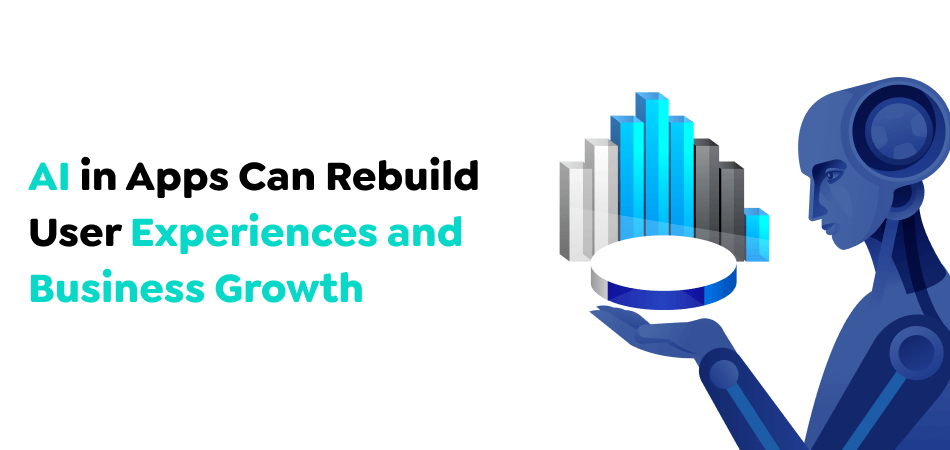
AI apps evaluate users’ behavior and preferences to provide a tailored experience. Personalized content, recommendations, and user interfaces can make apps more appealing and enjoyable to users. For example, streaming services use AI to provide the best content for users based on their previous behavior and improve their user experience overall.
AI-powered applications can process huge quantities of data in real-time and provide actionable information. This helps in efficient decision-making when it comes to understanding market trends and customer behavior or enhancing the efficiency of operations. It also helps businesses remain competitive and adaptable to changing market needs.
Incorporating AI into apps gives businesses an advantage because it provides superior customer support, user-specific experiences, and data-driven decisions. This is essential for a digitally competitive marketplace, helping companies to differentiate themselves.
AI apps can initiate active interactions with app users, increasing engagement. For instance, AI-powered fitness apps can keep users hydrated as they move around or finish their workouts by providing an interactive and more supportive interaction.
AI can automate routine or repetitive tasks, saving time and energy. From arranging meetings to handling customer service requests, AI can handle various jobs efficiently and improve workflow, reducing human error while allowing workers to concentrate on the most pressing tasks.
AI-based apps can be easily scaled to cope with increasing numbers of data and tasks. This scalability is advantageous for growing businesses, allowing them to expand without impacting performance.
Also Read : Saudi Arabia Ranks Top in Government Strategy for AI | What AI App Development Holds for the Future?
Introducing AI within mobile applications opens up many possibilities for apps, making them more straightforward, user-friendly, and more productive. Let’s take a closer look at how AI has transformed the world of mobile apps.
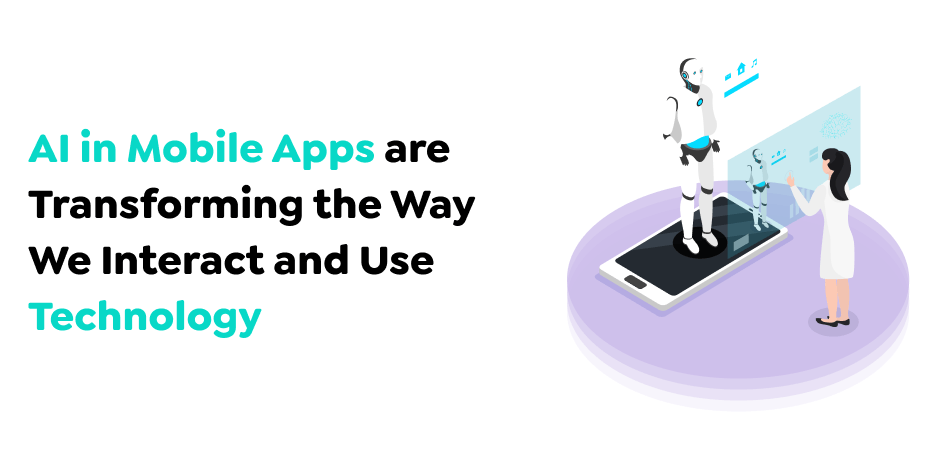
One of the prominent use cases for AI for mobile applications is the ability to personalize. AI algorithms will provide personalized recommendations for content by analyzing the user’s behavior patterns, preferences, and previous interactions.
In particular, streaming platforms utilize AI to suggest songs, films, series, or even movies in response to a user’s listening or browsing history. This ensures that the users will get content that matches their interests, increasing customer satisfaction and engagement.
The advancement of AI-driven chatbots or virtual assistants has changed customer service and user interaction. AI chatbot development can give instant replies to users’ queries, schedule appointments, or guide users through difficult tasks. Virtual assistants such as Siri, Google Assistant, and Alexa are now famous, allowing app users to schedule reminders, assist with queries, and control their smart devices in the home by using spoken commands.
AI-powered image recognition and voice recognition software have radically changed mobile apps. Applications can identify songs from snippets of information, and others, such as Google Photos, use image recognition to classify and label images. Medically specific apps use image recognition to analyze medical photos, helping identify early diagnoses and the best treatment options.
Also Read : Voice-Activated Fintech: Revolutionizing Financial Services in 2024
Although AR/VR are technologies independently, their interaction with AI can result in an enhanced and immersive experience. Shopping apps, for example, permit users to “try on” clothes or accessories with AR, using AI to ensure that the product is sized correctly and can move in real-time with the user.
AI has the capacity to evaluate large volumes of data and predict the future, it greatly benefits various apps. For example, AI apps for finance are used to predict stock market trends, and health apps can identify health-related issues that might be possible by analyzing user information. E-commerce apps use predictive analytics to forecast product demand, assisting companies in effective inventory management.
Applications like Google Translate have democratized language translation, removing global communication barriers. AI can enable real-time translation, even translating spoken language into various languages. Additionally, Natural Language Processing (NLP), a subset of AI, can allow apps to recognize and respond to user inputs using natural conversational languages.
In this day and age, where cybersecurity breaches have become a major issue, AI-driven protections in apps have taken on a greater importance. By analyzing patterns and behavior, AI can detect unusual behaviors and flag suspicious transactions or security issues. Finance and banking apps especially heavily rely on AI to guarantee user privacy and transaction security.
Also Read : Mobile App Development in the Middle East: 2025 Trends & Success Stories
In this section, we will explore how to create AI apps. These steps will help you understand how to develop an AI app that could revolutionize your business.
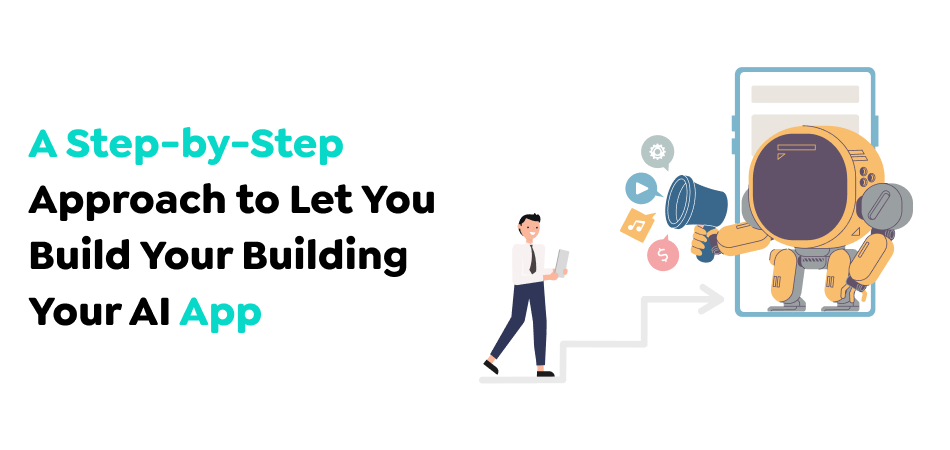
It could be helpful in your application to detect patterns in your customer’s behaviors, aid in making more informed choices, or identify individuals and objects in pictures. The first step towards transforming your idea into an executed reality is precisely establishing your objectives. The issue you’re trying to solve should be the initial step. It is best to list a couple of possibilities of use cases, then choose one that is the most compelling or significant. If the first idea does not work, you could experiment with a different one since AI can be utilized in every situation.
Data collection and preparation is the basis of AI application development. Even the success of most advanced AI models depends on the high quality of the information they’re trained on. Putting high-quality data over quantity is vital to minimize the significant expenses associated with inaccurate quality data.
Ensuring that your data has been correctly formatted and cleaned is critical to reduce the loss. Making the best datasets to train an AI algorithm is just the initial process. Effective data collection and preparation are initial steps crucial for building a robust AI application. This isn’t just about making it happen, but also making it happen. Accurate and well-labeled data is vital for the creation of intelligent apps. Having the correct data is vital. Possessing a suitable dataset is the only way to make your app successful. Ensure the data is accurate and in a format AI can use when you’ve received it.
The next step in creating an AI application is choosing the appropriate programming language and framework. Your success with the AI app depends on choosing the right tools and frameworks to build and educate your AI models. Your choice must meet your business’s requirements and seamlessly integrate with the existing system. Choosing the best technology speeds up the development process and improves the efficiency of the AI models.
Next, a mobile app development company in Saudi Arabia create the AI model. Your AI apps’ performance depends on how you’ve developed and trained your model. Choose your learning strategy from supervised to unsupervised and reinforcement learning to do this. You should then build your model’s design based on the specific requirements of your business. The top architectural styles include:
It is possible to begin developing the model using the basis of the data into validation data, training data, and testing data. The ideal ratio would be 70% to train, 15% for validation, and 15% for testing. After that, you have to add relevant information to the AI model so that it will recognize the data and take lessons. After that, you can review the accuracy and reliability of the model.
The most crucial aspect of the AI application development process is integrating the AI model into your application. A failure to integrate could ruin the AI application. Begin by deciding if you’ll incorporate the AI model into the app’s front or back end. You should include the AI model on your application’s front end so that your users can access it easily. If you have an AI speech recognition model, you can integrate it into the application’s backend to improve its quality. Based on your business’s specific requirements of your business it is essential to decide what method your AI model will use to process information in the cloud or the on-device.
The processing on devices is helpful if you want to create an AI-powered IoT application. In the absence of this, opt for the cloud-based option for data processing. Also, you must establish a feedback loop in your AI model to allow users to provide feedback and assess the AI model’s efficiency. In this way, you will be able to increase the efficiency of the AI model.
Also Read : How Much Will Mobile App Development Cost in 2025?
The process of developing the AI application isn’t a singular moment; it’s the start of a continuous improvement and refinement process. It’s crucial to consider each AI model as a constant working model, which requires continuous testing and iteration to ensure growth and improvements. AI models could be better from the beginning. They need to be taught from experiences and evolve to change over time. Additionally, regular retraining using new datasets is essential to stop ‘model drift,’ a frequent issue in which a model’s performance decreases because of changes in data patterns. Continuous updating helps keep the model current and up to date throughout its life.
The last step is to begin the application. You have two choices: utilize software or manage it yourself. If you manage your service, you will need to establish your servers and ensure that the AI algorithms are working according to the plan. Use analytics tools to continuously examine application performance, user interaction, and the precision of AI capabilities. Set up a process that allows users to provide feedback. This will ensure you have immediate feedback on potential enhancements or problems.
Cost to develop a mobile app in Saudi Arabia which is AI-powered can range from $30,000 to more than $150,000 and more. The complexity of the application is the most important element determining the price.
From $30,000 to $60,000 to build a basic AI application. Basic recommendation engines or chatbots that have limited capabilities. The apps will require fewer people to develop and take a shorter time to create.
The most common price for an AI application is between $60,000 and $150,000. AI-powered apps come with advanced features, such as AI-powered image recognition or chatbots that understand spoken words. The time it takes to develop and the staff size can often increase together.
Applications with real-time machine learning capabilities, also known as deep learning models, are classified as sophisticated artificial intelligence (AI) apps priced at $150,000+. So, spend an enormous amount of time building and planning for a team of experts.
The figures presented provide an overall picture. The specifics of every project will impact the final cost to build a mobile app in the UAE. So, it is essential to seek out a trustworthy developer agency. They’ll be able to assess your unique specifications, needs, and desired functions for a specific and customized estimation.
Also Read : AI in Agriculture: Discovering the Role of Artificial Intelligence in Agriculture Projects
We’ve previously mentioned that AI has applications in many industries. The AI market is expected to grow to $309.6 billion before 2026. If you’re unsure about the possible benefits of AI apps to your organization, this section explains what domains have already profited from AI’s benefits
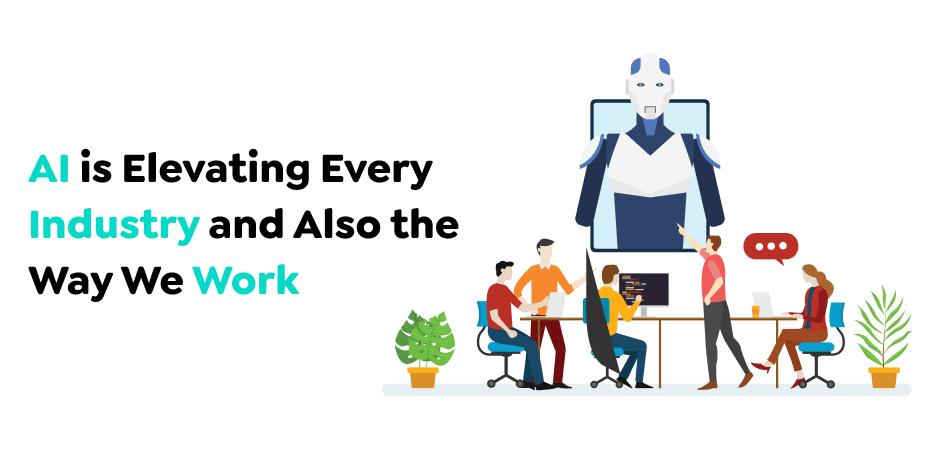
Let’s take a look at sectors that have been greatly affected by the introduction of AI-driven technologies:
The healthcare industry is a significant recipient of AI advances. From streamlining administrative duties to improving patient care, AI is making a key contribution to modernizing medical practice. Processing vast patient data quickly can lead to better informed decisions, resulting in better patient outcomes and more efficient health infrastructures.
Also Read : The Impact and Future of Machine Learning in Healthcare: Applications, Benefits, and Challenges
The financial industry is awash with data and harnesses AI for improved security, decision-making, and customer support. This technology has been instrumental in automating mundane jobs, forecasting market trends, and providing personalized client advice on finances.
Also Read : Reinventing the Financial Landscape Via AI in Banking
The giants of e-commerce are among the pioneers of AI adoption. AI has been key in analyzing consumer behavior, optimizing supply chain processes, and personalized customer experience. AI’s predictive abilities also assist online retailers in anticipating market changes and adjusting accordingly.
Also Read : A Guide to Develop an E-commerce App Like 6th Street
The entertainment industry, particularly streaming services, has embraced AI to learn about viewers’ tastes more effectively. This has resulted in more customized content recommendations and ensured that viewers will have something they want to listen to or watch. In addition, AI has streamlined content manufacturing and distribution.
The real estate industry uses AI to gain better insights into market trends and make the selling and buying procedure more transparent. AI technology is also employed to create virtual tours of properties, making viewing properties more accessible and easy for prospective buyers.
The efficiency of a business is at the heart of the logistics and transport business. AI has played a key role in optimizing routes, forecasting maintenance requirements, and enhancing the efficiency of overall operations. AI is also playing a part in creating autonomous cars, which could transform how we travel.
Also Read : Logistics Software Development: Features, Benefits, Trends, and a Lot More!
The field of AI apps is fast changing, driven by technological advances, increased computational power, and the growing availability of data. When we consider the future, various patterns are expected to impact the evolution of AI apps, making the apps more effective, smarter, and embedded in our everyday routines. Below are a few key developments to keep an eye on when it comes to AI application development:
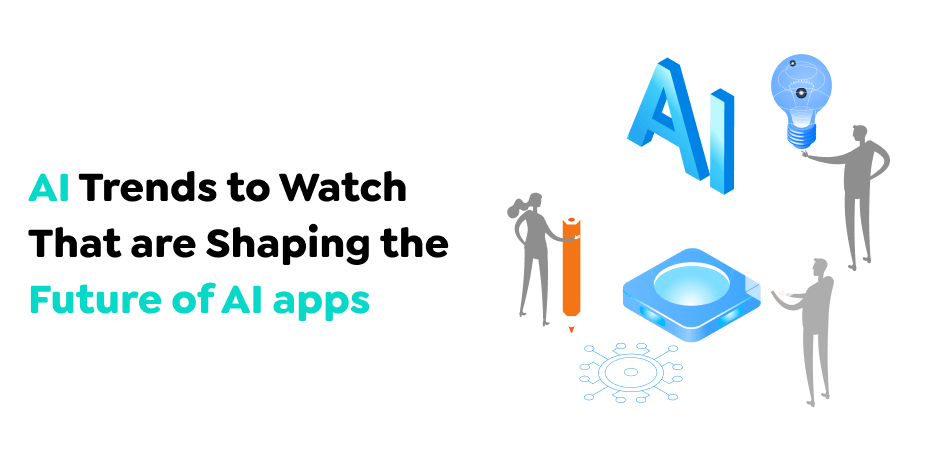
Generative AI has made considerable advancements in the last few years, especially in natural machine translation, image processing, and music composition. In the future, developments are anticipated to enhance the abilities of these models and allow them to produce more complicated and refined outputs. This will not just improve creative processes but also strengthen problem-solving tools, including the generation of dynamic content for customized user experience.
AI is increasingly geared towards systems that can make autonomic decisions based on real-time information. These systems will likely increase their use in fields like automobiles (self-driving automobiles), healthcare (diagnostic systems for diagnosing), and finance. The main challenge is ensuring these systems make safe, ethical, and reliable choices within complex settings.
The rapid impact of IoT and the demand for instant processing for applications like intelligent homes, wearables, and industrial IoT will fuel the growth technology known as edge AI. Edge AI can reduce latency, lower bandwidth use, and improve security and transparency by using local processing in devices instead of cloud servers. This trend is expected to grow with hardware advancements and more advanced device-specific AI algorithms.
As AI becomes a crucial part of our daily lives, ethical concerns and regulatory frameworks will play an essential part in their development. Concerns like privacy, biases of AI algorithms, and the effect of AI on job opportunities will require strict guidelines to ensure that AI can benefit humanity as a whole. We can expect more rigorous ethical guidelines and laws to be developed to guide the design and implementation of AI technologies.
The combination of AI and IoT, often referred to as AIoT, brings AI’s capabilities for decision-making along with connectivity to IoT and massive information generation. The synergy improves the capabilities of both technologies and creates greater autonomy and more intelligent devices that can communicate better with their surroundings.
Also Read : Mastering Mobile App Onboarding: Seamless User Experience & Higher Retention
Low-code and no-code technologies are expected to continue growing in popularity to make AI development more accessible to everyone. These platforms make it easier to access AI by allowing non-experts to develop and implement AI apps without requiring extensive technical knowledge of programming. This is essential for the speed of AI apps across industries and for enabling more businesses to use AI to improve efficiency and innovation.
Quantum computing could revolutionize AI by resolving complex issues beyond conventional computers’ capability. Though still in its initial phases, quantum-enhanced algorithms may substantially accelerate AI procedures like optimization and machine learning. This could result in advances in the research and development of new drugs, materials sciences, and much more.
As threats to cyberspace become more advanced, AI will play an ever-growing role in security. AI algorithms can analyze patterns, identify anomalies, and detect threats quicker than traditional approaches. The future of AI apps for cybersecurity will concentrate on prescriptive capabilities, which could prevent cybersecurity attacks before they begin.
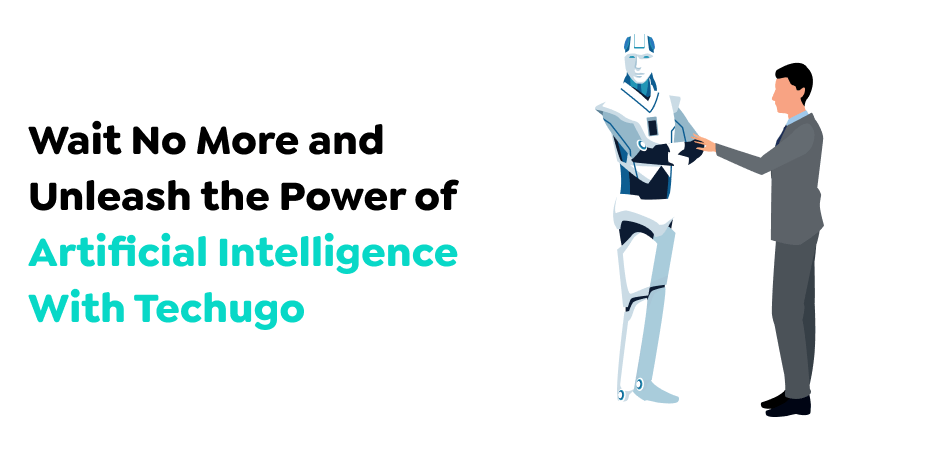
Now, we hope you know more about the process of creating an AI app. Overall, AI has a promising future. Due to its deep-learning abilities, AI can do jobs comparable to human brains, making it an essential device for helping to boost commercial development. AI is widely used across all industries, dramatically increasing customer satisfaction and giving businesses an advantage in their market.
Making an AI-powered mobile application is a challenging task. It requires doing a lot of research, analysis, and market analysis. There are a ton of tasks to be done. After that comes the design and deployment phase, which requires significant effort and time for the AI agencies to develop apps.
Working with a mobile app development company in UAE, ensures that you will reduce time, energy, and money. They already have systems and processes that save you time and energy. We are witnessing the growth of AI-powered technologies, which are expected to grow in various industries in the next few years.
Techugo, a leading AI app development company, is dedicated to helping businesses harness the power of AI to achieve their goals. With a team of skilled experts and a proven track record of success, Techugo offers comprehensive AI app development services tailored to your specific needs. From ideation to deployment, Techugo provides end-to-end solutions, ensuring a seamless and efficient development process. By partnering with Techugo, you can leverage the latest AI technologies to create innovative and impactful applications that drive growth and enhance customer satisfaction. Don’t wait any more! Get in touch with Techugo!
Write Us
sales@techugo.comOr fill this form